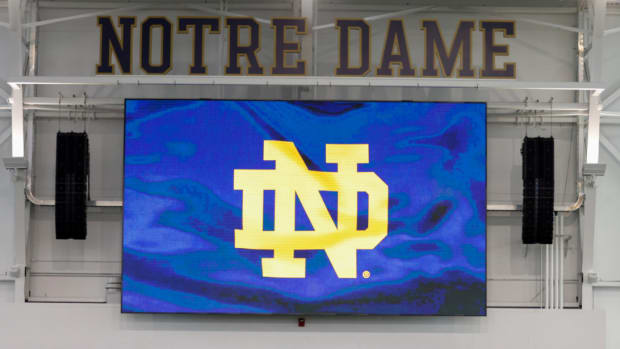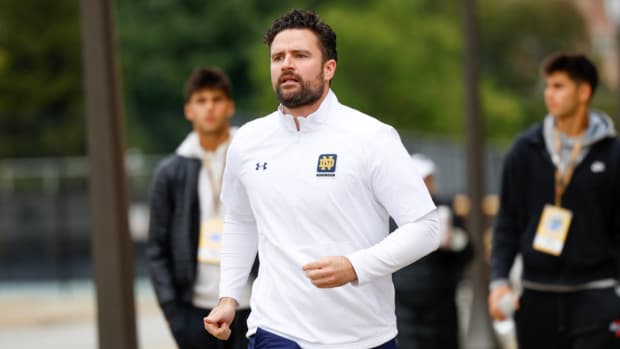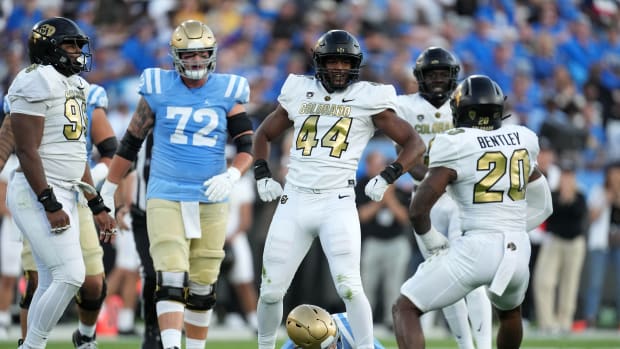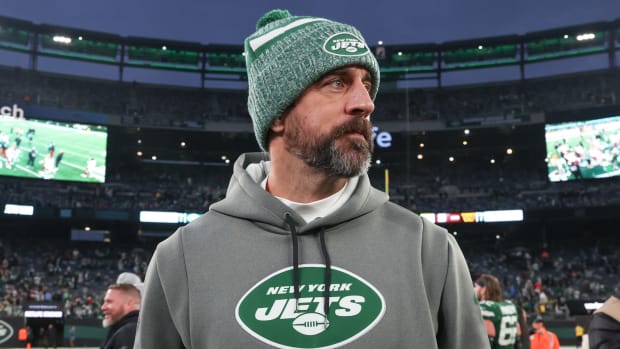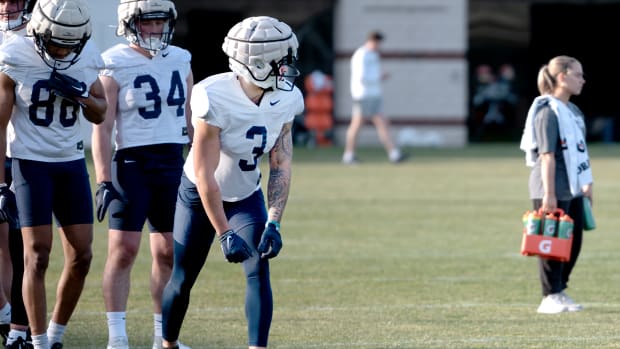CFP Committee Considering Multiple Options for Future Playoff Format as Pac-12 Disbandment Looms
IRVING, Texas — The leaders of the College Football Playoff made little progress Wednesday regarding broad changes to the structure of the eventual 12-team playoff, as uncertainty continues regarding the futures of Cal, Stanford, Washington State, Oregon State and SMU. All 10 conference commissioners and Notre Dame athletic director Jack Swarbrick attended the meeting, though ACC commissioner Jim Phillips teleconferenced in via Zoom after he was a late scratch on attending in-person.
The meetings were described as cordial by multiple parties, and Pac-12 commissioner George Kliavkoff and Big 12 commissioner Brett Yormark even sat next to each other at one point. Kliavkoff participated in the meetings offering his usual contributions, according to CFP executive director Bill Hancock, but the Pac-12 head man quickly exited to catch a flight, only offering a comment to reporters about his hope that a team in his league wins a CFP title this year. The elephant in the room, whether those inside it want to acknowledge it or not, was how the possible dissolution of the Pac-12 would affect the playoff’s format—and whether another lengthy debate is in store after the 12-team format was believed to be settled.
“We're gonna have to wait ‘til the dust settles before making any decisions about how that might affect CFP,” executive director Bill Hancock said. “The fact is we just don't know yet. No one knows how conference realignment is going to wind up. It would just be premature to make any of these decisions about it.”
Would it stay with six automatic qualifiers via conference championship and six at large bids (the so-called 6–6 model) or tip to a 5–7 split? The former is likely better for Group of 5 leagues for greater access to the CFP, while the latter would likely favor a current Power 5 team getting in as an at-large. Hancock called the limited discussions that did occur about 5–7 in the room “esoteric,” which is what he expected. Any change to the format of that magnitude would have to go through the 11 school presidents who form the CFP Board of Managers and have a unanimous vote in favor.
“To me what's important, the principle of honoring conference champions is important,” MAC commissioner Jon Steinbrecher said. “I think that's a bedrock principle of what we are doing and what we've built into this. I think it's important that that is continued as we move forward. Depending on the number of conferences we have, I think you can have a legitimate conversation about the number of champions that are set here as well as numbers of at-large [bids], but to me, start with the bedrock principle. And I think that's important that we keep that in there. I did. I felt good coming out of that conversation.”
There was also no talk of the specific repercussions of only having nine conferences if the Pac-12 were to completely fold. The Pac-12 is one of 11 owners of the CFP, along with the other conferences and Notre Dame. Mountain West commissioner Gloria Nevarez declined to talk to the media, but did say she’d be visiting Colorado State this weekend, which hosts Washington State in their season opener. The Cougars are one of the two Pac-12 leftovers (along with Oregon State) her league may be in line to poach if Cal and Stanford leave the Pac-12 for the ACC. The ACC’s decision on that matter looked like it was coming on Monday, but was put on hold as the University of North Carolina administration deals with the fallout from the shooting on campus this week that left a faculty member dead (UNC is one of four schools who stand as a possible swing vote to green light the Bay Area schools).
Significant progress was made on the original agenda of the meeting—comparably minor operational minutia including $3,000 travel stipends for the families of up to 125 players’ families per team per round when the playoff expands, and settling on a company to help the CFP manage hotel accommodations. The latter could be especially important for first-round games on campus sites that may be competing with things like holiday parties and graduations taking up otherwise needed rooms. Ticketing for on-campus first round games was not finalized, with the expectation that it will be settled when the group meets in September. The group has also begun the conversation around site selection for future title games beyond 2024 (Atlanta) and 2025 (Miami), the first repeat hosts in CFP history. Las Vegas is expected to receive significant consideration now that a championship game date later in the month of January would avoid the Consumer Electronic Show convention typically in the first week of January.
Hancock said it was unlikely that the CFP will have more than two TV partners for the last two years of the current contract.
“There was talk about multiple partners a couple years ago,” Hancock said. “There was an emphasis for that among one or two commissioners, but I don't feel that emphasis as much anymore. I think they’d be satisfied with one if that's how it comes out.”
ESPN owns the rights to broadcast the quarterfinals—which will be played at bowl sites—and it’s unclear whether there will be multiple network partners or just ESPN moving forward to handle the added first-round games coming in 2024 and ‘25. Hancock said he doesn’t get the sense a full-on NFL wild-card weekend setup of four games on four different networks would have much traction.
CFP leaders will meet again at the end of September, and likely monthly through the football season to continue to hash out details of the coming new setup. It remains unclear whether that setup will involve nine conferences or 10.


